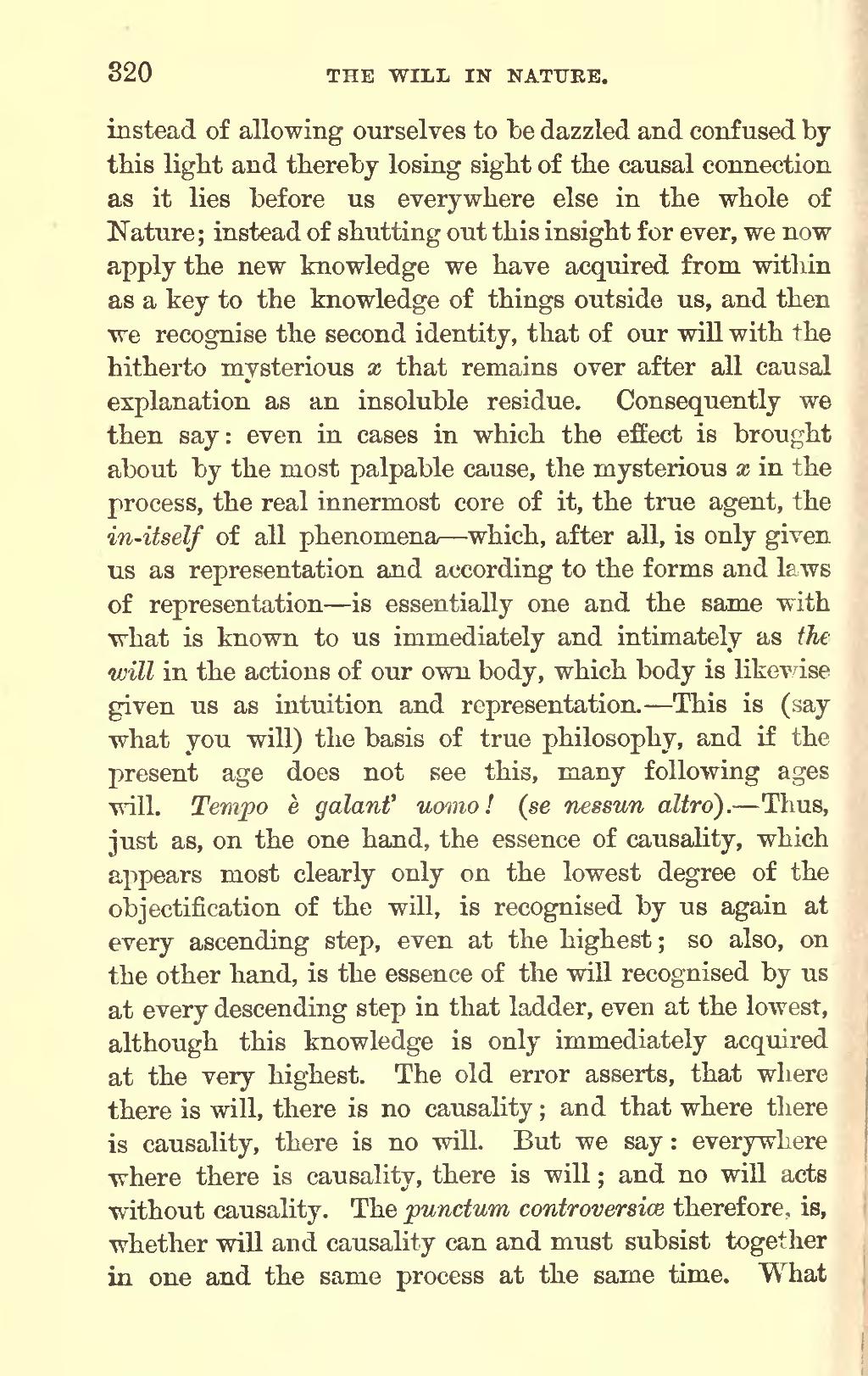THE WILL IN NATURE.
instead of allowing ourselves to be dazzled and confused by this light and thereby losing sight of the causal connection as it lies before us everywhere else in the whole of Nature; instead of shutting out this insight for ever, we now apply the new knowledge we have acquired from within as a key to the knowledge of things outside us, and then we recognise the second identity, that of our will with the hitherto mysterious x that remains over after all causal explanation as an insoluble residue. Consequently we then say: even in cases in which the effect is brought about by the most palpable cause, the mysterious x in the process, the real innermost core of it, the true agent, the in-itself of all phenomena which, after all, is only given us as representation and according to the forms and laws of representation is essentially one and the same with what is known to us immediately and intimately as the will in the actions of our own body, which body is likewise given us as intuition and representation. This is (say what you will) the basis of true philosophy, and if the present age does not see this, many following ages will. Tempo è galantuomo! (se nessun' altro) [Time is a man of honor! (even if no one else is)]. Thus, just as, on the one hand, the essence of causality, which appears most clearly only on the lowest degree of the objectification of the will, is recognised by us again at every ascending step, even at the highest; so also, on the other hand, is the essence of the will recognised by us at every descending step in that ladder, even at the lowest, although this knowledge is only immediately acquired at the very highest. The old error asserts, that where there is will, there is no causality; and that where there is causality, there is no will. But we say: everywhere where there is causality, there is will ; and no will acts without causality. The punctum controversiae [point of controversy] therefore, is, whether will and causality can and must subsist together in one and the same process at the same time.
PHYSICAL
